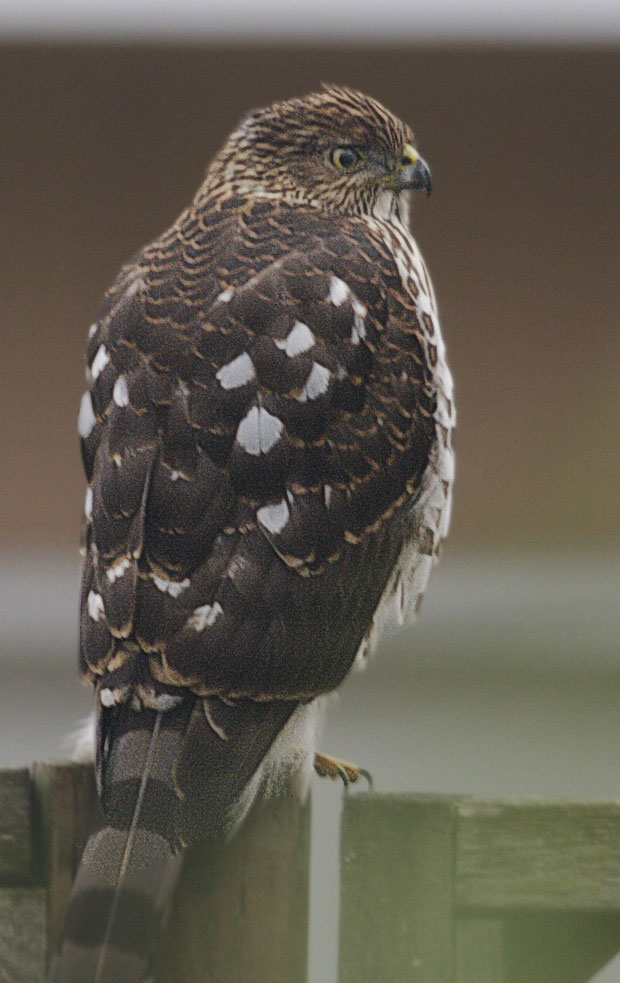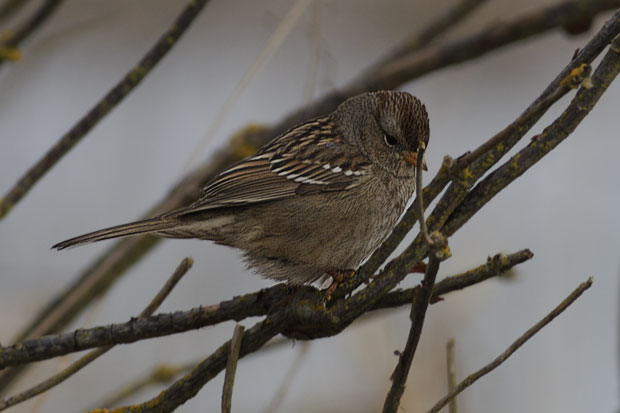If you haven’t been convinced to read Stegner’s Wolf Willow for any other reason, you ought to read it for his description of the American Dream, specifically the dream of those who settled the West:
But the lesson that the Plains settler could not learn, short of living it out, was that no system of farming, no matter how strenuously applied, could produce crops in that country during one of the irregular and unpredictable periods of drought and that the consequences of trying to force the issue could be disastrous to both people and land.
There were books that would have told him (though he might not have believed) that the reduction of the annual rainfall by a single inch, or a shift of the period of greatest precipitation from spring and summer to fall, could mean the difference between a good crop and a burned field. The winds, hail, and cyclones he would believe as soon as he experienced them once. But the large lesson that he would have found most useful the marginal nature of agriculture on the arid Plains was precisely the one that as a pioneer he found unacceptable, because it denied his hope.
His hope was involved with the myth of the Garden West. Franklin and Jefferson had formulated it, politicians and speculators and railroads had promoted it, the ignorant faith of hundreds of thousands of home seekers had kept it alive well into the industrial age and out into the dry country where it had little chance of coming true. The dream that circulated vaguely in the heads of people like my parents had something to do with the corncribs and pigpens of Illinois and Iowa, but little to do with the arid Plains furred with their curly grass and seared by blow torch winds. If the frontier had been continuous either as to people or as to experience, Kansas might have taught them something, the Dakotas where they had tarried briefly might have given them a hint. But apparently no matter how hard a time hope may have had in earlier settlements, the opening of any new frontier, even a marginal one, revives it intact and undiminished. In the midst of the worst drouth until then experienced on the Plains, people burned out in the Dakotas turned their teams south toward Indian Territory to give her another whirl.
So Whitemud, though some of its founders had had experience in Manitoba, Montana, or the Dakotas, and though some of them remembered the dry ’90’s, simply had to repeat history. What is more, the pioneers unquestionably passed on to their children, including me, some of their faith in the future. At least until the memory of free land fades, hope, it turns out, is heritable.
Yet the fact is, failure was woven into the very web of Whitemud. It was the inevitable warp, as hope was the woof, of that belated frontier. Our lawyers and doctors, for instance. Once in a while pioneering enthusiasm or a real medical missionary idealism draws good doctors into the hinterlands, but more often the cause of their coming is incompetence or venality, and what applies to doctors applies double to lawyers.
Wolf Willow weaves these two themes of hope and failure together as deftly as any work I’ve ever read, but the pattern is fully realized in this last section.
Stegner begins by showing how even the richest members of Wolf Willow were defeated by unrealistic expectations:
Corky Jones, who is the closest thing that country has to a local historian, has a theory that those who came there with the greatest resources went broke the fastest because they were deluded into extending themselves. I am not sure that the theory is entirely dependable—certainly Martin lasted a good deal longer than many others, including ourselves. But the county broke him just as surely as it broke the dirt farmer with 320 acres, a tar paper shack, and a borrowed team and plow broke him a leg or an arm at a time until he didn’t have a sound bone in him
Even Pop Martin who founded Whitemud ended up destitute, living with his ex-wife in Hollywood, but Stegner felt his family’s fate was even worse because
At least Martin left something behind him — a town, a cemetery. Even a dump ground is an institution of permanence. But what we did on the homestead was written in wind. It began as it ended empty space, grass and sky. I remember it as it originally was, for my brother and I, aged eight and six, accompanied my father when he went out to make the first “improvements.” Except for the four foot iron post jutting from the prairie just where our wagon track met the trail to Hydro, Montana, and for the three shallow holes with the survey stake at their apex that marked the near corner of our land, there was nothing to distinguish or divide our land from all other, to show which 320 acres of that wind and grass were ours.
It’s natural to want to leave our mark on the world. So, it’s not surprising that Stegner did not even want to visit their old homestead because he feared that he would not find any sign that it had ever existed.
Despite his obvious resentment toward his father and toward the existence the family led because of his father’s efforts to homestead, Stegner felt that his experiences made him who he was:
For her sake [his mother’s] I have regretted that miserable homestead, and blamed my father for the blind and ignorant lemming impulse that brought us to it. But on my own account I would not have missed it could not have missed it and be who I am, for better or worse. How better could a boy have known loneliness, which I must think a good thing to know? Who ever came more truly face to face with beauty than a boy who in a waste of character less grass and burn outs came upon the first pale primrose on the coulee bank, or on some day of great coasting clouds looked across acres of flax in bloom? Why, short of exile, would anyone ever submit to the vast geometry of sky and earth, to the glare and heat, to the withering winds? But how else could he have met the mystery of nights when the stars were scoured clean and the prairie was full of breathings from a long way off, and the strange, friendly barking of night hunting owls?
It is precisely these experiences that made Stegner the staunch defender of the remaining wilderness areas in the West. One could even go so far as to argue that it is precisely this ambivalence that made Stegner the author he was.
Though most of us know about the American Dream, perhaps only those like Stegner who have directly experienced its elation and heartbreak can fully comprehend and communicate it:
There may be as good ways to understand the shape and intensity of the dream that peopled the continent, but this seems to me one good one. How does one know in his bones what this continent has meant to Western man unless he has, though briefly and in the midst of failure, belatedly and in the wrong place, made trails and paths on an untouched country and built human living places, however transitory, at the edge of a field that he helped break from prairie sod? How does one know what wilderness has meant to Americans unless he has shared the guilt of wastefully and ignorantly tampering with it in the name of Progress?
Luckily, for those of us lucky enough not to have experienced living on the frontier there are writers like Stegner who can give us some inkling of what it must have really felt like, and thus inoculate ourselves against the kind of sentimental portrayals offered by the movies.
In the end, though, Stegner argues that by its very nature the Garden West was an ambivalent dream:
One who has lived the dream, the temporary fulfillment, and the disappointment has had the full course. He may lack a thousand things that the rest of the world takes for granted, and because his experience is belated he may feel like an anachronism all his life. But he will know one thing about what it means to be an American, because he has known the raw continent, and not as tourist but as denizen. Some of the beauty, the innocence, and the callousness must stick to him, and some of the regret. The vein of melancholy in the North American mind may be owing to many causes, but it is surely not weakened by the perception that the fulfillment of the American Dream means inevitably the death of the noble savagery and freedom of the wild. Anyone who has lived on a frontier knows the inescapable ambivalence of the old fashioned American conscience, for he has first renewed himself in Eden and then set about converting it into the lamentable modern world. And that is true even if the Eden is, as mine was, almost unmitigated discomfort and deprivation.
One could not simultaneously experience the wilderness and conquer it. The Dream of the Garden West was limited by the land itself. As we found out, even America was not infinite. At some point we would inevitably run out of wilderness to conquer. Despite our best attempts, there is no true wilderness left in America. We have conquered virtually every square foot of wilderness. Anyone who hikes Wilderness areas soon realizes that they are really wilderness areas only in our imagination, and our imaginations must inevitably suffer from that loss.
Like this:
Like Loading...



